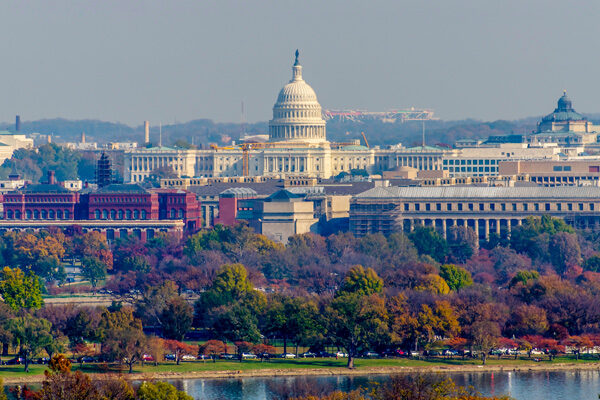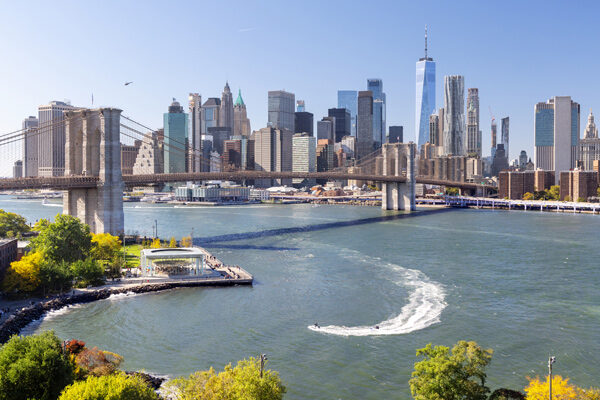Environmental Lawyers specializing in laws that regulate environmental practices and protect natural resources, advising clients on compliance with environmental regulations, represent groups in litigation related to environmental damage, and advocate for policy reform. Their work ranges on issues from pollution control to renewable energy projects and conservation. For those seeking roles or looking to hire, expertise in environmental law is crucial in the complex intersection of legal, scientific, and policy challenges.
Popular Cities for Environmental Lawyers
The demand for environmental lawyers varies across the United States, influenced by regulatory landscapes, industries, and ecological concerns. These cities are key battlegrounds for environmental issues, offering lawyers opportunities to engage with complex cases that have significant implications for public health, policy, and the future of the planet. Here are five cities where environmental lawyers are particularly in demand:
Washington DC
Legal Recruiter Spotlight: Beacon Hill Legal
Beacon Hill Legal specializes in attorney placements, helping law firms and corporations find top legal talent in the Washington, DC area. We connect highly qualified attorneys with prestigious legal opportunities.
San Francisco
San Francisco and the broader Bay Area are known for their strong environmental advocacy, progressive policies, and leading role in climate change initiatives. Environmental lawyers in this region work on cutting-edge issues related to renewable energy, conservation, and sustainable development, benefiting from the area’s culture of innovation.
Denver
Legal Recruiter Spotlight: Mestel & Company
Mestel & Company provides comprehensive legal recruiting services in Denver, in the Mountain West Region, and across the country, focusing on attorney placement of all levels. With a nationwide network and local expertise, they cater to law firms and corporations seeking top legal talent.
Seattle
Seattle’s commitment to sustainability and its proximity to diverse natural resources, including forests and waterways, make it a prime location for environmental lawyers. Legal professionals here engage in matters related to environmental conservation, wildlife protection, and addressing pollution from industrial and technological activities.
New York City
With its significant urban challenges and ambitious environmental goals, New York City offers a dynamic environment for environmental lawyers. Issues such as urban pollution, green building initiatives, and environmental justice are central to the work of lawyers in the city, alongside regulatory compliance for businesses and litigation related to environmental harm.
Employers
Competition for legal talent is fierce. Gain the advantage and hire with confidence.
Candidates
Your next big opportunity is here.
We can help you find it.
Common Lawyer Duties and Responsibilities
Environmental Lawyers play a crucial role in protecting the environment through legal means. Their key responsibilities include:
- Regulatory Compliance: Advising businesses, government agencies, and non-profits on compliance with environmental laws and regulations, ensuring operations do not harm the environment.
- Litigation: Representing clients in court or before environmental regulatory bodies in cases involving pollution, resource management, and protection of natural habitats. This includes both defending against alleged violations and pursuing action against violators.
- Policy Advocacy: Working with environmental groups or governmental bodies to develop, advocate for, and implement policies that promote environmental protection and sustainable development.
- Permitting and Licensing: Assisting clients in obtaining necessary environmental permits and licenses for projects, ensuring compliance with legal standards.
- Environmental Impact Assessments: Conducting or reviewing assessments to evaluate the potential environmental impact of proposed projects and advising on mitigation strategies.
- Public Interest Litigation: Representing community groups or non-profits in actions aimed at enforcing environmental laws and protecting public resources from degradation.
These duties require a deep understanding of environmental law, as well as the scientific principles underlying environmental protection efforts, making environmental lawyers key players in the fight against ecological degradation and climate change.
Frequently Asked Questions
The demand for environmental lawyers is on an upward trajectory, with projections indicating a 10% growth from 2018 to 2028. This growth is fueled by heightened environmental consciousness, advancements in regulations, and a worldwide emphasis on sustainability and combating climate change. As legal complexities surrounding environmental conservation, energy consumption, and natural resource governance intensify, the need for specialized legal professionals in this area expands. Additionally, the rise of green technologies and the surge in renewable energy initiatives are bolstering the need for attorneys skilled in navigating environmental regulations and advocating for policy advancements.
Several key industries are driving the demand for environmental lawyers, including:
- Energy: Both traditional fossil fuel sectors and renewable energy companies require environmental lawyers for compliance with regulations, permitting processes, and litigation.
- Manufacturing: Industries that have significant environmental footprints look to environmental lawyers to navigate pollution control laws and manage waste disposal practices.
- Real Estate and Construction: Ensuring environmental compliance in land development and building projects, especially with the rise of green building standards.
- Government and Non-Profit: Regulatory agencies and environmental advocacy groups need lawyers for policy development, enforcement actions, and public interest litigation.
- Agriculture and Forestry: Addressing issues related to land use, pesticide regulation, and conservation efforts.
Working in environmental law can vary significantly between law firms and companies, with each offering unique advantages:
- Law Firm: Lawyers in firms often have the opportunity to work on a diverse range of cases, representing various clients from different sectors. This can provide a broad exposure to environmental law issues and litigation experience. Law firms may also offer paths to partnership and specialization in niche areas of environmental law.
- Company: In-house lawyers focus on ensuring that their employer’s operations comply with environmental regulations and on managing any legal risks associated with environmental matters. Working in-house can offer a more stable work environment and the chance to deeply engage with the specific environmental challenges and policies relevant to the company’s industry.
Whether working for a law firm or a company, environmental lawyers can make significant contributions to the protection of natural resources and the promotion of sustainable practices. The choice between the two paths depends on personal career goals, preferences for case diversity or industry specialization, and the desire to engage in advocacy or corporate compliance.
In the field of environmental law, both lateral moves and relocation can offer significant career opportunities, though the best path depends on individual goals and market conditions. Lateral moves within the specialty can lead to positions with larger law firms or organizations with a more significant environmental focus, providing lawyers with access to a broader range of cases and projects.
This can be particularly beneficial for those looking to specialize further within the field. Relocation might be advantageous for environmental lawyers seeking markets with a higher demand for their specialty, such as cities with a strong presence of environmental agencies, non-profits, or industries heavily impacted by environmental regulations. Regions facing specific environmental challenges, like coastal areas dealing with climate change or industrial regions focusing on pollution control, may also offer more opportunities.
The average salary for an environmental lawyer is $132,377, reflecting a range that is influenced by factors such as the sector (public, private, or non-profit), employer size and location, and the attorney’s experience. While environmental law isn’t always among the highest-paying legal fields, lawyers in large firms or corporations, particularly those with expertise in sought-after areas like compliance, litigation, and renewable energy, can command competitive salaries.
Their earning potential can rival or surpass that of other legal specialties. However, environmental lawyers in public or non-profit roles often accept lower salaries, valuing the societal impact of their work in promoting environmental protection and sustainability over monetary compensation.
The environmental law sector, like many others, has seen an increase in remote work opportunities, especially since the pandemic. This shift has allowed for greater flexibility and can contribute to an improved work-life balance, as lawyers can save time on commutes and potentially have more control over their schedules.
However, the nature of environmental law work, which can include fieldwork, client meetings, and court appearances, may still require a physical presence at times. Moreover, like other legal professions, environmental lawyers can face periods of high demand and tight deadlines that may challenge work-life balance. Firms and organizations within this field are increasingly recognizing the importance of supporting their employees’ well-being, but experiences can vary widely depending on the specific workplace culture and policies.
- Climate Change Legislation: Increasing global focus on climate change is leading to new regulations aimed at reducing carbon emissions and promoting sustainability, requiring legal expertise to navigate.
- Renewable Energy Development: The shift towards renewable energy sources like wind and solar is creating new opportunities and legal frameworks for environmental lawyers.
- Environmental Justice: There’s a growing movement to address the disproportionate impact of environmental issues on marginalized communities, integrating social justice with environmental law.
- Corporate Sustainability: Businesses are increasingly adopting sustainability practices, driven by both regulatory requirements and consumer demand, necessitating legal guidance on compliance and strategy.
- Biodiversity and Conservation Efforts: Legal mechanisms for protecting endangered species and habitats are evolving, reflecting broader conservation goals.
- Complex Regulatory Landscape: Environmental law spans a wide range of local, national, and international regulations, making it challenging to ensure comprehensive compliance.
- Interdisciplinary Nature: Practicing effectively requires not just legal knowledge but also an understanding of scientific and technical aspects of environmental issues.
- Balancing Economic and Environmental Interests: Lawyers often navigate the delicate balance between development goals and environmental protection, requiring nuanced negotiation skills.
- Rapid Legal and Policy Changes: The legal framework around environmental issues is constantly evolving, requiring lawyers to stay informed and adaptable.
- Strong Analytical and Research Skills: Successful environmental lawyers must analyze complex legal and scientific data, making strong research skills essential.
- Passion for Environmental Issues: A genuine interest in and commitment to environmental protection can be a driving force in this specialty.
- Excellent Communication Skills: The ability to clearly communicate complex legal and environmental concepts to clients, courts, and the public is crucial.
- Negotiation and Advocacy Skills: Proficiency in negotiation is key, whether advocating for stronger environmental protections or representing clients in regulatory matters.
- Adaptability: Given the fast-paced changes in environmental law and policy, adaptability is essential for staying effective and responsive to new challenges.




